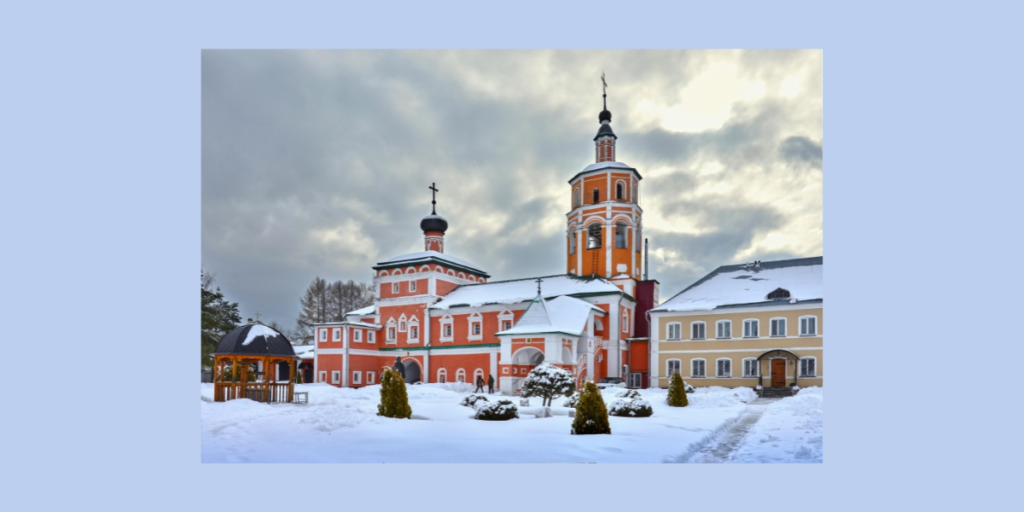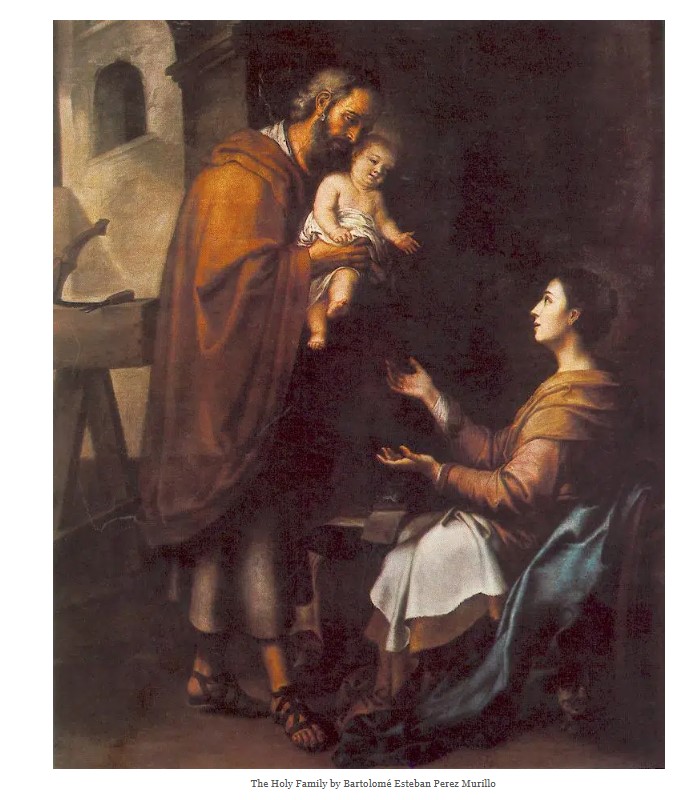
Russia Initiates a Culture of Life
By: Fr. Shenan J. Boquet, updated & published January 6, 2025, Human Life International
Recently, Russian Orthodox Church Patriarch Kirill sent letters to pregnant women to encourage them to choose life and welcome their children. The letters are part of an initiative organized by the “Hello, Mom!” project with similar letters planned to be distributed to moms across the country.
Amid plummeting birthrates, some of the lowest reported in Russia since 1999, the Patriarch reminds mothers that motherhood is a blessing because their children are blessings. While some express sadness over these gifts, pressuring women to abort their children and reject motherhood, Patriarch Kirill instead expresses great joy, wonder, and awe in their presence, affirming these God-given gifts: “You are now experiencing a special time when a great miracle of God is happening: a new person is preparing to come into the world.”

Pro-lifers know that it is not sufficient simply to oppose abortion, but to do all that is necessary to respect the gift of life and assist moms—accompanying them with friendship and encouragement, offering spiritual guidance, and providing needed resources. This understanding and personal care is expressed by Patriarch Kirill, who offers not only encouragement to the moms facing difficulties and uncertainties, saying, “do not let your hearts be troubled or afraid” (Jn 14:27), but he also assures them that they are not alone on this journey. “There are people around you,” he says, “who are ready to support, show care and participation.”
Bishops are Leaders for Life
Bishops play a vital role in serving as spiritual leaders, teachers, and guardians of doctrine, impacting and shaping the local faith community, helping the faithful respond to the demands of justice and compassion inherent in the Gospel message. Though there may be other mitigating reasons for the Patriarch’s intervention, he shows his concern for moms in need and rejects the violence of abortion. By his actions, he proclaims that life is a supreme gift. He reaffirms “the value of human life and its inviolability, and at the same time [gives] a pressing appeal addressed to each and every person, in the name of God: respect, protect, love and serve life, every human life” (Evangelium vitae, no. 5).
Patriarch Kirill hopes his letters to vulnerable moms will encourage them to embrace motherhood and the gift of life. He wants them to see that God has given them an opportunity to share in His creation—an eternal soul is entering the world. Through these letters and public outreach, he also desires to change a century-old anti-life mindset that has brought Russia (and several countries) to the precipice of a demographic winter.
Russia Denies a Culture of Life
Russia’s population has been on the decline since the 1990s, with brief moments of recovery. Like most countries across Europe which are below replacement levels, Russia is facing a demographic crisis. And despite having a disastrously low total fertility rate (TFR) of 1.5 children per woman, abortion rates in Russia remain very high, as reported by Reuters.
In 2022 there were more than half a million abortions and 1.3 million children born in Russia. In 2024, according to a Euro News article as reported by Russia’s governmental statistic agency Rosstat, there were 16,000 less Russian children born in the first half of this year than during the first half of 2023. This catastrophic population downswing has been self-inflicted, created by decades of government sponsored anti-natalist programs and policies.

The Soviet Union (modern-day Russia) was the first nation in the world to legalize abortion on November 18, 1920. Since that time, it is estimated that over the last 100 years over one billion preborn children have been murdered by abortion. Throughout the world, with innumerable pernicious consequences, the entire societal and cultural mentality toward the incomparable worth of human life has been shifted, so that the murderous act of abortion has now become a normal part of life.
The Battle for Life
When a civilization makes war with its future by casting fertility as a “disease” to be “cured,” there will be more far-reaching impacts to society and culture. To counter this false anthropological mindset that devalues the sacredness of marriage, conjugal love, and the immutable and intrinsic good of human life, there must be a “vigorous reaffirmation of the value of human life and its inviolability.” For “only in this direction will [we] find justice, development, true freedom, peace and happiness” (Evangelium vitae, no. 5).
Patriarch Kirill’s letters and the “Hello, Mom!” project are part of a larger program that aims at strengthening the sacred institutions of marriage and the family in Russia. Because women are vulnerable to abortion, the primary goal of the program and letters are to convince moms at the early stages of their pregnancy not to have an abortion but to welcome life. By promoting traditional family values, incentivizing couples to welcome more children, Russian leaders (civil and ecclesial) hope to alter the pervading mindset of abortion and gradually increase the population.
Yet, as I have discussed in previous Spirit & Life columns, there are many reasons to believe that, barring a radical conversion of the heart, or some unforeseen event, the human race will continue to choose the path towards ever greater infertility. After all, for decades now, governments like Russia have poured billions of dollars into promoting abortion, contraception, and sterilization, creating an anti-natalist worldview. And even in the face of potentially catastrophic birth declines, this “new” cultural and societal mindset that no longer views marriage, family, and children as normative and beautiful, will be nearly impossible to shift.
Fundamentally, the problem is spiritual. As I have often observed, the entire spirit of death (i.e., culture of death) rests on the rotten foundation of the denial of the intrinsic, God-given worth of every person—beings made in the image and likeness of God (Gen 1:27).
Demographic Winter
The term “demographic winter” refers to a situation where birth rates fall significantly below the replacement level, which is 2.1 children per woman. As the number of children dwindles, this leads to an aging population and a shrinking workforce, creating a myriad of social and economic challenges.
According to the latest UN data, there are around 830 million people aged 65 and older in the world, making up about 10% of the global population. This figure is expected to rise to 1.7 billion by 2054. And demographers estimate that as life expectancy grows and fertility rates continue to decline that the global total fertility rate will be 1.3 by 2050 and 1.04 by 2100. It does not take much imagination to realize the dire consequences that will ensue.
There are several reasons behind a demographic winter that lead to lower birth rates. A fundamental contributor is the anti-natalist programs and policies of progressive governments (direct or indirect actions) that advance reproductive health programs exclusively focused on promoting contraception, sterilization, and abortion. These encourage the mindset that having fewer children is good for individuals, families, and society, while also providing the means to achieve the goal.
Moreover, governments have utilized economic measures to advance anti-natalism: removing tax exemptions for large families, employing policies that make it more difficult to afford decent housing, and failing to promote policies that help to lower the cost of food, commodities, etc. Hence, high living costs and economic instability have contributed to lower birth rates, causing fear among couples and resulting in a delayed or reduced number of children. In other words, by their actions they discourage welcoming children and create a mindset that being open to the gift of life is burdensome.
Elements for a Pro-Death Culture
Over the last fifty years, at least in the U.S., there has been a change in family dynamics: cohabitation, delayed marriages, fewer children, and a rise in single parent households. Also, there has been a decrease in religious observance and a growing number of people claiming no religious affiliation. This has impacted how people view marriage, sexuality, fertility, and family life. Judeo-Christian values that have been held for millennia have weakened and are being replaced by “new” societal values that advocate lifestyles that discourage or reject marriage as designed by the Creator and childbirth—i.e., same-sex unions, contraception, sterilization, etc.—leading to fewer children.
There has also been a change in socio-cultural norms, like prioritizing individualism, education, and career over marriage and family life. As an example of this trend, the TFR in the U.S. was around 4.0 in the 1950s, but has plunged to 1.7 today. As each generation has had successively fewer and fewer children (because of the contraceptive mentality and other anti-life ideologies), governments and anti-natalists have successively normalized a culture of childlessness.
When societies create such obstacles, either societal or governmental, marriage and family suffer and birth rates inevitably decline. Fewer marriages mean fewer children.
Many do face legitimate hardships that persuade them to welcome less children, which contributes to a demographic winter. However, we cannot surrender to a sense of hopelessness and fear and a belief that we cannot alter the future or reclaim goods once cherished, such as marriage and family life. Doing so would cause younger generations to less likely see the value and vocation of marriage and prioritize welcoming children, thus tightening the grasp of a demographic winter. And simply removing the abovementioned obstacles does not necessarily lead to a new mindset toward marriage, family, and the welcoming of children.
Promoting Families in Society
“The welfare of the family is decisive for the future of the world and that of the Church,” says Pope Francis (Amoris laetitia, no. 31). For this reason, he added, as “Christians, we can hardly stop advocating marriage simply to avoid countering contemporary sensibilities, or out of a desire to be fashionable or a sense of helplessness in the face of human and moral failings” (Amoris laetitia, no. 35).
For millennia, couples have welcomed children into the world in far, far more difficult circumstances than anything faced by couples in affluent Western nations. However, as I have discussed in this column before, many couples’ expectations about the standard of living and financial security are so high, that it is viewed as an act of “heroism” to welcome a single child in a developed Western nation. Getting married and welcoming children are no longer viewed as a normal part of a meaningful life, but rather an extraordinary step to be taken only when circumstances are “perfect,” and financial security is assured. In the face of such unrealistic standards, no couple would ever have a child! And indeed, many aren’t.
Catholic teaching about human life, marriage, sex, and fertility affirms the value of the human person and protects us from degradation. When the Catholic Church teaches that marriage is a Christian vocation, it is saying that the couple’s relationship is more than simply their choice to enter a union, which is a social and legal institution. Marriage involves a call from God and a response from two people, who promise to build, in cooperation with divine grace, a lifelong, intimate, and sacramental partnership of love and life.
The remedy to the current dilemma will not be a shift solely in government programs and policies. There is a limit to what the government can do. Pro-natal policies are, without a doubt, an important part of encouraging couples to welcome children in a world fraught with uncertainty. However, it will never be enough.
And, as societies have become richer, people find it harder to afford children, which means we also need people to change their priorities. We need to awaken from the cultural malaise that veils society’s sight, desensitizing it to the good of marriage and family life, which devalues the bearing of children.
Joy to Transfix the World
Anxiety in the face of life seems to be inherited. It is being passed down through generations. Parents who only have a few children spread this fear to their children, who in turn have even fewer children. The longer our societies and cultures emphasize the harmful aspects of child-rearing, and the more we encourage our citizens to focus on purely temporal concerns, such as getting a good job and buying nice homes, cars, clothes, and vacations, the less people are interested in the nearly forgotten goods of marriage and family.
It is up to us, then, to joyfully proclaim the Gospel of Life—not only with our words, but also with our actions! Celebrate the beauty and sacredness of marriage! Be open to life! Be generous and welcome children!

How noble is the Christian vision of marriage, and of procreation. Getting married and starting a family, more than anything else, requires immense courage and hope. To welcome a new life into the world is as much to say that one believes with all one’s heart that life is good and that the future looks bright. To be a parent is not a dry “social responsibility.” It is the path towards opening one’s heart to the transcendent. To drawing into the world an eternal soul, made in the “image and likeness of God,” that may one day worship the Creator for all of eternity.
I am grateful to Patriarch Kirill for his intervention in Russia’s demographic crisis. I pray it and the “Hello, Mom!” project are the beginning of a radical transformation from a malicious anti-life ideology (and false human anthropology) that began over 100 years ago. And let us make our words those of the Patriarch’s, as we greet every mother and child, saying, “I wish you and your child good health, peace of mind and many mercies from Christ, the Giver of Life.”
Fr. Shenan J. Boquet is president of Human Life International and a leading expert on the international pro-life and family movement.
